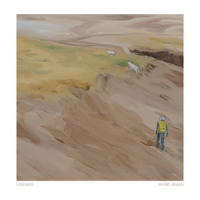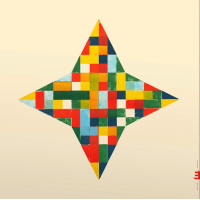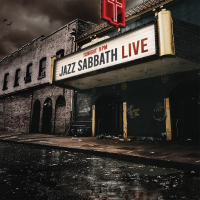Home » Jazz Articles » Album Review » Quinn Oulton: Alexithymia
Quinn Oulton: Alexithymia
This new album by British singer-composer-saxophonist-multi-instrumentalist Quinn Oulton asks the same question implicitly. In it one hears echoes of Jeff Buckley, Peter Gabriel, Kate Bush—even, on the track "Clashing Colours," Sade—just not much that sounds like jazz, or what some might think of as jazz. The atmosphere is downbeat; the tempos are slow; the mood one of brooding melancholy and anguished soul-searching. It turns out that "alexithymia" is a real word, referring to a psychiatric condition suffered by many British men, the inability to recognize or describe one's own emotions. If Oulton himself suffers from this, his album assuredly does not.
His songs are strongly melodic, expressed in a soft, vulnerable voice. In fact he plays and sings most of what we hear. The sound is dominated by multi-layered voices and electronica; the conventional instruments—keyboards, saxophones and drums—are also in the mix, but heavily treated, as on a pop album.
Whilst it would be a stretch to call Alexithymia "jazz," it may also be argued that only a jazz musician could have made it. Oulton has a command of harmony, dynamics and mood way more sophisticated than anything normally heard in modern pop. Listen, for example, to "two six," a short track featuring a string quartet: it demonstrates all these qualities in miniature.
What Oulton has achieved on this album is a distillation of the jazz knowledge he gained at the Royal Academy of Music and in various collaborations with the likes of drummer Moses Boyd and guitarist Artie Zaitz—both of whom make fleeting appearances here. Maybe it isn't jazz in any conventional sense, but so what? It's real music.
Track Listing
Remember; Better; Royalty; Clashing Colours; Far Away; Next Time; two six; Never; Running.
Personnel
Album information
Title: Alexithymia | Year Released: 2022 | Record Label: DeepMatter
Tags
PREVIOUS / NEXT
Support All About Jazz
 All About Jazz has been a pillar of jazz since 1995, championing it as an art form and, more importantly, supporting the musicians who make it. Our enduring commitment has made "AAJ" one of the most culturally important websites of its kind, read by hundreds of thousands of fans, musicians and industry figures every month.
All About Jazz has been a pillar of jazz since 1995, championing it as an art form and, more importantly, supporting the musicians who make it. Our enduring commitment has made "AAJ" one of the most culturally important websites of its kind, read by hundreds of thousands of fans, musicians and industry figures every month.




















